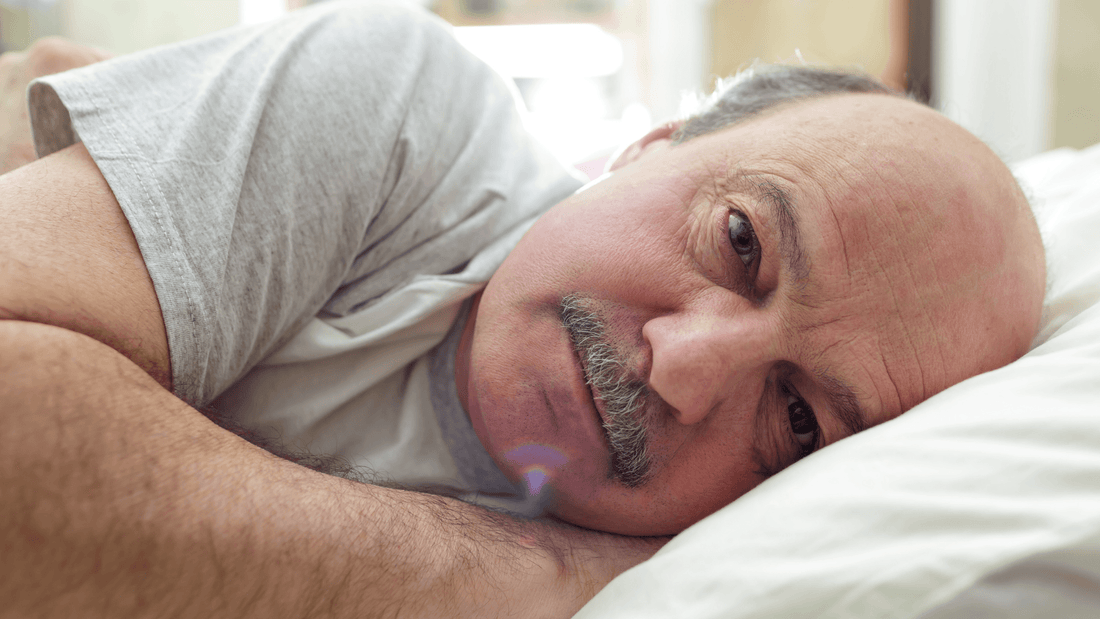
7 ways how ageing affects your sleep
Naturally YoursShare

It is said that you are only as old as you feel, but dealing with sleepless nights can make you feel ancient.
Sleep is a core pillar of health. It definitely deserves more attention from us as doctors or health care professionals about our own health or that of an ageing relative.
Now a days, sleep problems are very common among families and among ageing adults too.
How much sleep does a person require? It depends completely on a person’s age, physical activity levels and stress too.
Sleep should be adequate enough to make a person feel refreshed upon waking up and stay alert throughout the day. For adults, it is usually recommended 7 to 9 hours of sleep every night.
A lull in alertness after having lunch is very common in all age groups. But, people may find themselves waking up at the crack of dawn, or even struggling to sleep throughout night.
It is not uncommon for older adults to face physical health issues like sleep apnea, insomnia, heart diseases, frequent urination, constipation and the list goes on!!
So, it is unwise for you to complain of not sleeping sound at night. But, even in the absence of a health problem, ageing affects sleep.
1. Decline in the quality of sleep
Sleep becomes lighter and more fragmented as we age. Our REM (Rapid eye movement) sleep too declines. Sleep quality and architecture too changes a bit as age advances.
2. Total sleep time reduces as we age
A study by Eve Van Cauter published in JAMA .2000 concluded that the total sleep time decreases by 10 minutes every 10 years after midlife period.
3. Changes in the body’s inner circadian rhythm
The circadian rhythm is a daily pattern that has an effect on the body functioning.
This rhythm is regulated by the brain and also exposure to sunlight. As age advances, people tend to get sleepy earlier in the day and wakeup even earlier. They cannot withstand late nights
4. Health problems and Medications
Many medications might cause insomnia and might affect sleep patterns too! It is very common for older people to develop health issues that can in turn cause sleep deprivation
* Painful disorders like osteoarthritis in which the person might get midnight pain or burning sensations in joints causing difficulty getting sleep.
* Neurodegenerative disorders like Alzheimer’s disease or Parkinson’s disease
* Gastrointestinal reflux disorder – Heartburn symptoms especially seen after consuming heavy or spicy meals late night
* Heart and lung conditions in which there may be breathing difficulties especially in the night
* Mental disorders like depression, anxiety and mood swings
5. Repeated urge to go for pee
Older adults usually face a very common combination of waking up to pee very frequently at night and difficulty sleeping again.
This frequent urination can be caused by an enlarged prostate or even an overactive bladder
6. Insomnia
Insomnia is a condition where it is difficult for a person to fall asleep and stay sleepy too, despite lying comfortably on bed for long hours.
Insomnia is a “grand-daddy “of all sleep problems as it affects many people in middle or older age. It becomes even more common with ageing
7. Less deep sleep
Older people spend more time in lighter stages of sleep and comparatively lesser time in deep sleep.
They also produce less melatonin. Thus, they wake up more throughout the night
How do you cope up with lack of sleep?

If you found that your sleep has got significantly worse as you got older, you can try out many techniques to deal with it.
- Relax yourself.
- Stay away from phone, television and laptop at night
- Prefer taking a warm water bath before going to bed
- Read your favorite book or a novel
- A little light exercise each day can promote a restful night’s sleep.
- Having a glass a warm milk before sleeping
The take a way-
If an older person is having difficulty in sleeping, it is salient to make sure that his or her sleep problem is not due to any of the above common causes.
It is normal for one to sleep a little less and less deeply as one ages. “Normal ageing” does bring out some changes in sleep.
The sleep becomes more fragile, taking longer to fall asleep and waking up even more often. At the same time, feeling more tired throughout the day and feeling to take a nap are very common in older population.
Always remember, getting enough good quality sleep helps maintain brain health quality, physical health and mood also.
So, it’s probably not realistic to expect that as you get older, you will sleep as long or as soundly compared to when you were young. Treating an underlying problem can help improve the quality of sleep.
ABOUT THE AUTHOR

Sneha Jain, Dietician
Sneha is a Post graduate with specialization in Nutrition and Dietetics. She is a university topper and holds 5+ years of experience in Apollo hospitals, VLCC, slimsutra and first cry fit-kids . She has successfully counselled clients all over India for weight loss, weight gain, diabetes, hypertension, PCOD, hypothyroid, Pregnancy and lactation and growth charts for children. She has her own diet consultation e-clinic (diet_diariez)
She believes in customized diets and eating local and seasonal foods. Her counselling not only involves diet planning, but also lifestyle modification and stress relief strategies.
